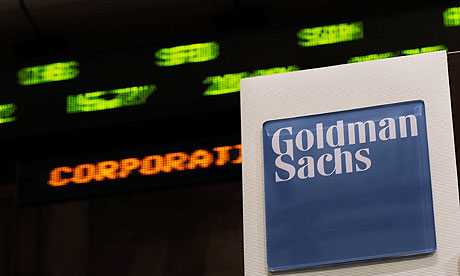
A former Goldman Sachs programmer will not serve time for stealing the investment firm's proprietary source code because prosecutors charged him for the theft under one statute that was irrelevant to the case, and another that is too antiquated to apply, lawyers say.
When Sergey Aleynikov left his job as a programmer at Goldman Sachs in 2009, he didn't just take the odd office supply. He walked out with "hundreds of thousands of lines" of source code for the firm's high-speed trading system, according to prosecutors.
He was swiftly charged, and convicted, of theft of property under two laws: the Economic Espionage Act and National Stolen Property Act.
There's only one problem with that: neither of those laws really apply in this case.
The Manhattan-based second court of appeals overturned Aleynikov's sentence in February in what was at the time a surprise move. On Wednesday the three-judge panel released their opinion.
The court argues that Aleynikov, 42, was wrongly charged with theft of property under the National Stolen Property Act because source code is not a physical object.
"Because Aleynikov did not 'assume physical control' over anything when he took the source code, and because he did not thereby 'deprive [Goldman] of its use,' Aleynikov did not violate the [National Stolen Property Act]," the court wrote in its decision for United States v Aleynikov.
Enacted in 1934, the NSPA was written when automobiles were relatively new and people could more easily transport stolen goods across state lines.
"People have tried to use that statute to prosecute an intangible good, such as source code. But the way the statute has been interpreted, 'goods' is something tangible," Peter Toren, a partner at Weisbroad Matteis & Copley, told the Guardian.
But digital pirates should pause before they start claiming immunity, lawyers cautioned.
"I think the prosecutors could have charged Aleynikov with criminal copyright violations under the copyright act," concluded Toren.
The government's case is done, though, and cannot bring Aleynikov back to court. There is nothing stopping Goldman, however, from pressing civil charges against him.
A spokesman for Goldman Sachs declined to comment on the case.
The court also argued that the Economic Espionage Act does not apply to Aleynikov's case either because the code he admits to downloading was neither "produced for" nor "placed in" interstate or foreign commerce.
"The enormous profits the system yielded for Goldman depended on no one else having it," the judges wrote. "Because the HFT system was not designed to enter or pass in commerce, or to make something that does, Aleynikov's theft of source code relating to that system was not an offense under the EEA."
"If there's a problem with letting this guy get away with something that you and I might agree is illegal and immoral and unethical, then it's up to Congress to decide to make the act clearer about whether it should include intangible property," added Toren, who is also the author of the legal reference guide Intellectual Property and Computer Crimes.
Justice Guido Calabresi, in a concurring opinion, said as much himself.
"I wish to express the hope that Congress will return to the issue and state in appropriate language, what I believe they meant to make criminal in the EEA," he wrote.
The decision is relevant in that it influences other stolen source code cases working their way through the seventh circuit court of appeals.
One of them, United States v Yang, bears a striking resemblance to the Goldman Sachs case: the government indicted Chunlai Yang for theft of trade secrets – including 1,000 lines of source code – from his former employer, the CME Group, which operates an electronic trading platform called Globex.
Yang was accused with stealing the code in order to start his own futures exchange software company. He pled not guilty and, like Aleynikov, could also walk.

